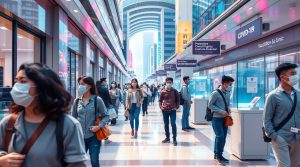
COVID-19 pandemic has drastically changed how we live, work, and interact with others. While vaccines and treatments have played a significant role in managing the virus, individual prevention measures remain critical to reducing its spread. Understanding what you can do right now to protect yourself and others is essential for maintaining public health and personal well-being.
1. Stay Informed About COVID-19
The first step in prevention is staying updated with accurate and reliable information. The virus continues to evolve, and so do recommendations from public health organizations like the World Health Organization (WHO) and the Centers for Disease Control and Prevention (CDC). Regularly check their updates to understand current variants, local infection rates, and new guidelines.
2. Practice Good Hand Hygiene
One of the simplest yet most effective ways to prevent COVID-19 is by practicing good hand hygiene. Wash your hands frequently with soap and water for at least 20 seconds, especially after being in public places, touching your face, or handling commonly touched surfaces. If soap and water are not available, use a hand sanitizer containing at least 60% alcohol.
3. Wear a Mask in Crowded Places
Masks remain an essential tool in preventing the spread of COVID-19, particularly in crowded or poorly ventilated spaces. While mask mandates may vary depending on your location, wearing a well-fitted mask in high-risk settings offers protection for you and those around you. Opt for high-quality masks like N95s or KN95s for maximum efficacy.
4. Maintain Physical Distancing
Social distancing helps limit the spread of respiratory droplets, which are the primary means of COVID-19 transmission. Maintain at least a 6-foot distance from people who are not part of your household, especially in public places. If distancing is not possible, ensure good ventilation or wear a mask.
5. Prioritize Vaccination and Boosters
Vaccines are one of the most effective tools in reducing severe illness, hospitalization, and death caused by COVID-19. Ensure you are fully vaccinated and stay up-to-date with booster doses as recommended by health authorities. Vaccination not only protects you but also contributes to community immunity, reducing the virus’s spread.
6. Improve Indoor Air Quality
COVID-19 is known to spread more easily in enclosed spaces with poor ventilation. To reduce risk, improve airflow in your home or workplace by opening windows and doors or using air purifiers with HEPA filters. Public spaces can also benefit from upgraded HVAC systems to better circulate clean air.
7. Monitor Your Health
Regularly monitor yourself and your family for COVID-19 symptoms, such as fever, cough, fatigue, and loss of taste or smell. If you feel unwell, stay home and avoid contact with others. Get tested promptly to confirm whether you have COVID-19 and follow isolation guidelines if you test positive.
8. Encourage Healthy Habits
Maintaining a strong immune system is vital in preventing any illness, including COVID-19. Adopt healthy habits like eating a balanced diet, exercising regularly, getting adequate sleep, and managing stress. These practices contribute to overall health and resilience against infections.
Conclusion
While the world has made significant progress in managing COVID-19, prevention remains crucial. Simple actions like practicing good hygiene, wearing masks, maintaining physical distance, and staying up-to-date with vaccinations can make a significant difference.